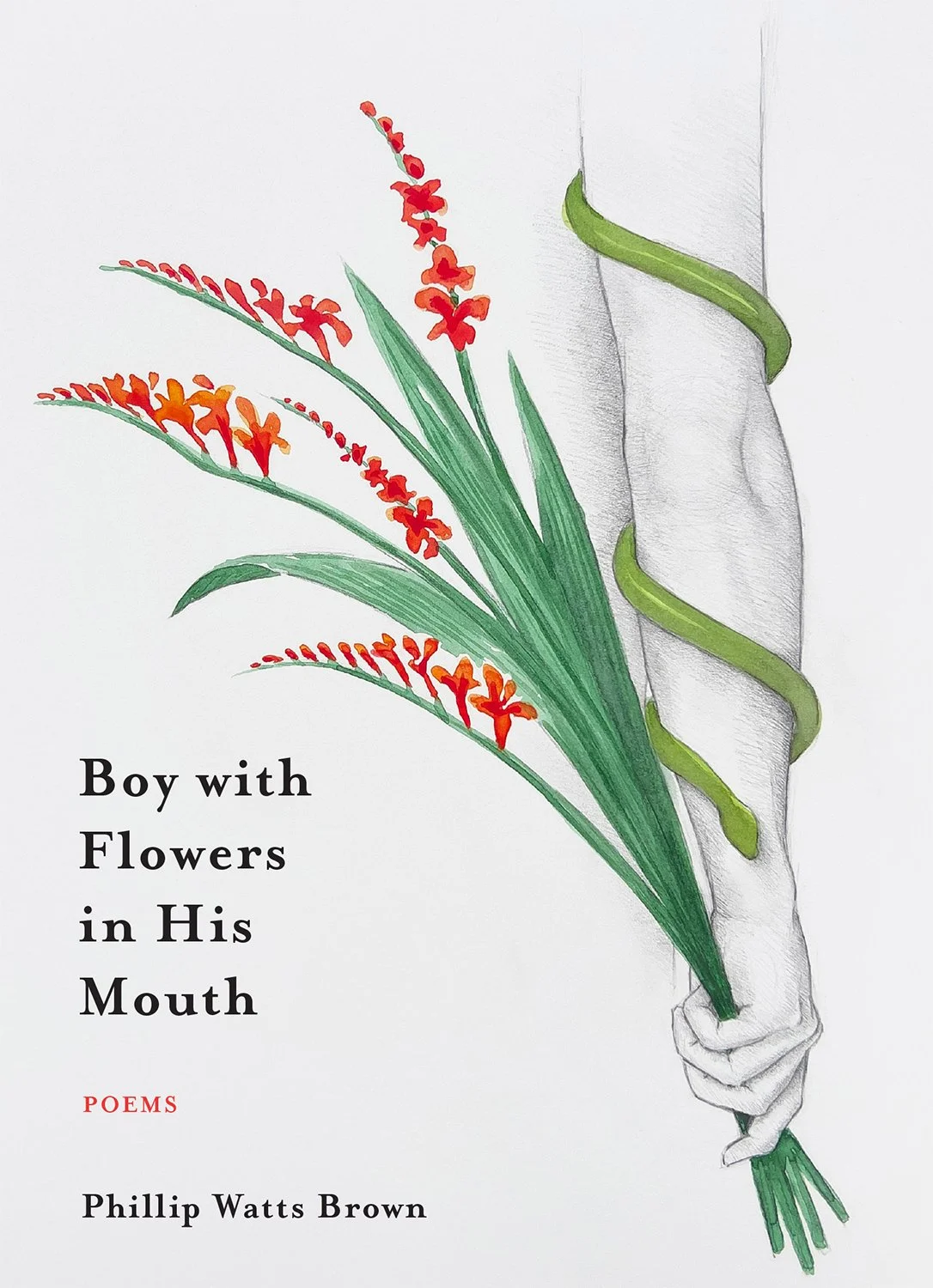About the Collection
Boy with Flowers in His Mouth witnesses a gay identity unfurling: from the earliest stirrings of desire through the tangles of young romantic relationships and, eventually, marriage. The speaker journeys from Utah to Oregon to California, from adolescence to adulthood, from the rigidity of religion to a softer spirituality. A garden growing both flowers and weeds, this collection contains moments of joy and pleasure complicated by sorrow and shame. Weaving in references to art and photography, the collection demonstrates a sensitivity to symbolism, beauty, and light that infuses the writing, reminiscent of Mark Doty and Richie Hofmann. “Shame unfurls in the silence” in the first poem, but blooms into a reflective voice—a poet more sure of himself in the present, now tending to the boy he used to be.
Boy with Flowers in His Mouth
Everyone can tell
he’s a boy who blooms.
Can’t talk without petals falling,
soft evidence against him.
He bites down on stems
keeping quiet, the taste
both bitter and floral:
a terrible summer.
Shame unfurls in the silence,
his body a greenhouse
flush with desire. A dozen
questions blossom on his tongue.
No one will explain this.
No one will name the flowers.
originally published in tahoma literary review

Advance praise for Boy with Flowers in His Mouth
“‘It’s slow work, unlearning paralysis.’ And this slow work unfolds with gorgeous precision across Phillip Watts Brown’s Boy with Flowers in His Mouth. A story of queer desire told in intimate couplets, this focused collection charts a path from repressive religions and masculinities toward a gentle blooming, a liberated love. These poems move like a held breath and sigh, quiet devastation giving way to wisdom — ‘not how I imagined heaven, / but any freedom to breathe is paradise.’ Brown writes with a startling sensitivity, the smallest moments rich with meaning, and readers will leave this taut and aching work more attuned to their own tenderness.”


